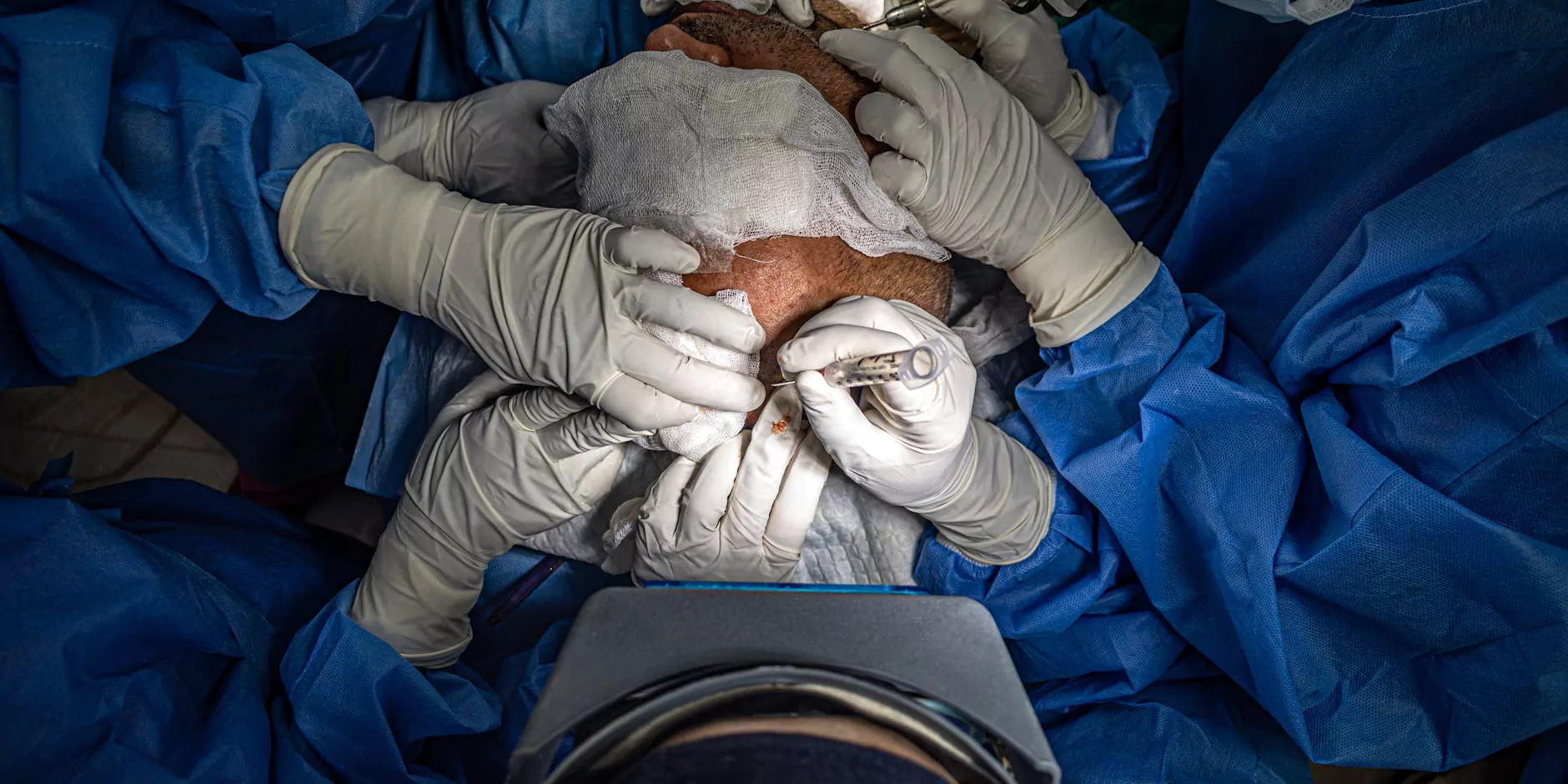College Accommodations After a Traumatic Brain Injury

Welcome to the page dedicated to college accommodations for individuals recovering from a traumatic brain injury or concussion. At Foley James D MD, we understand the challenges that come with returning to college after such an injury. This page aims to provide you with comprehensive information on how to make a successful transition back to your college life by accessing the necessary support and accommodations.
The Impact of Traumatic Brain Injuries on College Students
Traumatic brain injuries (TBIs), including concussions, can have a profound impact on college students. These injuries often result from accidents, sports-related incidents, or other causes, and can lead to a range of physical, cognitive, and emotional challenges. Students who have experienced a TBI may find it difficult to focus, concentrate, and retain information. They may also struggle with memory, organization, and time management.
The effects of a TBI can significantly disrupt a student's academic and personal life. However, with appropriate accommodations and support, it is possible to minimize these challenges and ensure a successful college experience.
Understanding College Accommodations
Colleges and universities have disability services offices that are responsible for providing accommodations to students with disabilities, including those with brain injuries. These offices are dedicated to ensuring equal opportunities for all students and helping them thrive academically.
When it comes to college accommodations for traumatic brain injuries, it is important to communicate with your institution's disability services office as early as possible. They will guide you through the process of obtaining accommodations tailored to your specific needs. These accommodations may include:
- Extended time for exams and assignments: Extra time can provide students with brain injuries the opportunity to complete tasks without feeling rushed.
- Note-taking support: Access to comprehensive notes or note-taking assistance can help students who struggle with memory or attention difficulties.
- Alternative testing options: Some students may benefit from taking exams in a distraction-reduced environment or through proctored online platforms.
- Flexible attendance policies: Attendance policies may be flexible, allowing students who experience symptoms or difficulties related to their brain injury to attend classes on a modified schedule.
- Assistive technology: Students may have access to assistive devices or software to aid in reading, writing, time management, and organization.
- Accommodations for cognitive challenges: These accommodations can include priority scheduling, reduced course loads, or smaller class sizes to facilitate learning and reduce stress.
- Physical accessibility: Campus accessibility is crucial for students with mobility issues resulting from brain injuries.
- Emotional and psychological support: Students may benefit from counseling services to address any emotional or psychological impact from their injury.
It is important to note that the specific accommodations available may vary depending on your institution. However, disability services offices are committed to working with each student individually to create a supportive environment that addresses their unique challenges.
Tips for a Successful Transition
Returning to college after a traumatic brain injury requires careful planning and support. Here are some tips to help ensure a successful transition:
1. Advocate for Yourself
Be proactive in seeking the accommodations you need. Self-advocacy is key to obtaining the necessary support. Reach out to your college's disability services office, provide them with documentation of your brain injury, and work together to develop an accommodation plan.
2. Establish a Support Network
Building a network of supportive peers, professors, and mentors can make a significant difference in your college experience. Surround yourself with understanding individuals who can provide emotional support and help foster academic success.
3. Communicate with Professors
Open and honest communication with your professors is crucial. Inform them about your brain injury, your accommodations, and any specific concerns or needs you may have. This way, they can better understand your situation and provide additional support if necessary.
4. Develop Time Management Strategies
Managing your time effectively is essential for success in college. Develop practical strategies, such as creating daily schedules, using reminders and alarms, and breaking tasks into manageable chunks. This way, you can stay organized and minimize stress associated with deadlines and coursework.
5. Take Care of Your Well-being
Recovering from a brain injury requires both physical and emotional well-being. Prioritize your health by getting enough sleep, eating nutritious meals, staying hydrated, and engaging in activities that promote relaxation and stress relief.
6. Utilize Available Resources
Take advantage of all the resources your college provides, including tutoring services, study groups, writing centers, and academic workshops. These resources can further enhance your learning experience and provide additional support beyond your accommodations.
7. Maintain a Positive Mindset
Finally, maintain a positive mindset throughout your college journey. Embrace challenges as opportunities for growth, celebrate your achievements, and remember that recovery from a traumatic brain injury takes time. With determination and support, you can succeed in achieving your academic goals.
Contact Foley James D MD for Further Assistance
If you require further assistance or have specific questions regarding college accommodations after a traumatic brain injury, we encourage you to reach out to our dedicated team at Foley James D MD. Our professionals are experienced in guiding students through the transition process and can provide additional resources and support.
Remember, you're not alone in this journey. By accessing the right accommodations and support, you can thrive academically while recovering from your traumatic brain injury. Start planning your success today!



